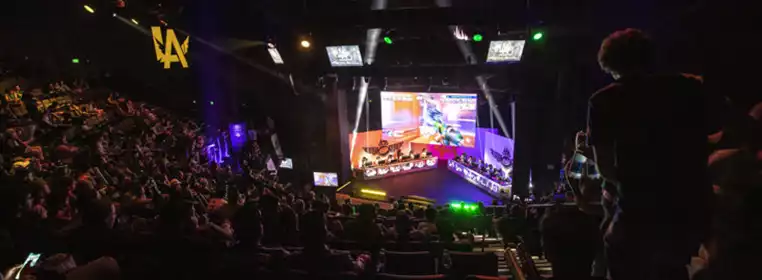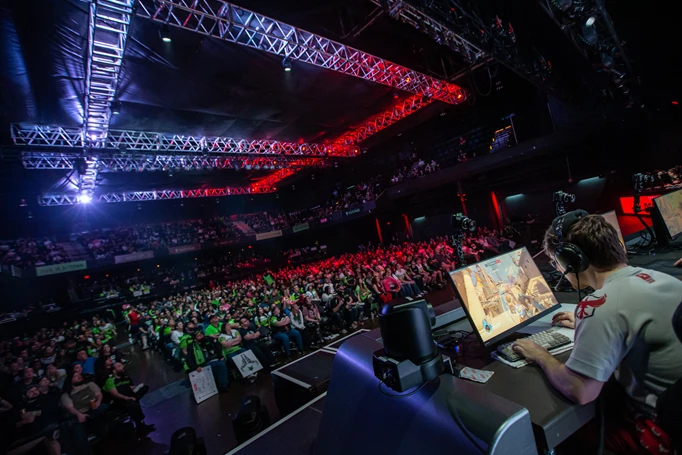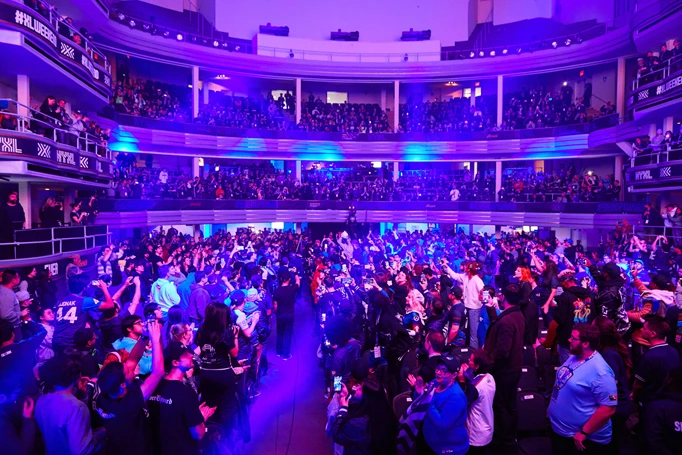The Three Best Solutions to the Hero Pools Issue Analyzed

The discussion around hero pools and possible solutions that would both benefit the viewer and professionals alike has been a hot topic in the community. From extending the hero pools to team-determined hero bans, to aggressive patching, many suggestions have been made. Today we want to evaluate them based on the concepts of “fit” and “good” that we elaborated on yesterday. “Fitness” refers to the feasibility of a feature to help build a sustainable league, increasing viewership and fans’ interest in the game. The “goodness” of a feature is determined by how morally acceptable it is to run these systems, looking at the effects of everyone involved in the ecosystem and their well-being. For a deeper elaboration of these concepts, check out yesterday’s article.
Extending hero pools duration to four weeks
One proposed change is to increase the duration of any given hero pool. Assistant Coach of the Philadelphia Fusion, ChrisTFer, has suggested a length of four weeks, explaining that we’d likely see an evolution of each meta state from chaotic to organized, which in itself could build rewarding storylines. As the Overwatch League hero pool bans are currently determining which heroes are banned at the Master rank and above on the ladder too, a four-week cycle would likely prove unfit if the connection remained this way. Barring ranked players from playing their favourite hero for a full month sounds like a bad idea. Instead, we’d have to get rid of hero pools in ranked altogether. This change would still allow Overwatch League players to pick each hero they want to grind their mechanics out.
A tedious meta stagnation in ranked is unlikely to result from this, as the four weeks of hero pools would still show a wide range of stylistic choices by teams, The trickling down of the Overwatch League meta into ranked appears to not happen in this timeframe either. It’s hard to assess whether or not viewers would be fatigued by watching a meta in the worst of cases, in which a strong comp would be found in week 1 of the ban cycle and is then played by every team for a full month. It could be especially bad if the composition consists of unfun compositional archetypes and heroes. The reception of the Mei/McCree meta of the first month of OWL was probably about as bad as it could’ve gotten and it didn’t seem like a problem that would frame this solution as unfit. The storylines spawning out of 4-week hero pools would likely yield a higher payoff too, increasing interest in the product.
Given that teams would have something to incrementally work towards and with stability in which players could build up a specialised skill that lasts them through the weeks, the value of rest would likely surpass the value of grinding by the law of diminishing returns setting in. For example, the 200th hour on McCree in a specific meta is not going to provide the same improvement in performance as the 20th hour would have. While not optimally good, it seems like an acceptable and workable compromise.
It's likely that a two-week duration would still lean on the bad sight of things, hence why four weeks should be the starting point of the test for its fitness.

 Click to enlarge
Click to enlargeAggressive patching
Another solution often brought up is to scrap the hero pool system entirely and to make good on the promise of aggressively patching imbalances that the development team has given to its player base. The biggest concerns for the fitness of this approach is that the development team wouldn’t be able to deliver hard-hitting balance changes with the frequency that is required to quench the thirst for novelty that the audience seems to have, while still maintaining the integrity of the game with sensible changes. This system could be fit, especially when looked at from a macro scale of other successful games, which have had frequent changes churned out to keep the news cycle rolling.
In terms of the challenges that professionals will have to face, I’m surprised that coaches and players would bring this up as a feasible solution. Depending on the frequency of those balance patches, they would surely impact teams in a very similar way, never allowing players to settle into a game state because damage numbers and entire mechanics would frequently be changed, in the best of cases requiring entirely new tactics and strategies to work around. At worst, you’re more frequently changing the heroes who are viable, turning up the dial of chaos. The mechanism by which this change would be less intrusive has yet to be explained
The risk of developers failing to deliver upon expectations and to introduce changes that would negatively impact the game at all levels might be too high to rate this suggestion as fit. In terms of workability for all professionals involved, it would highly depend on the quality and frequency of the balance changes but the expectation for this to end up being less stressful than hero pools seems misguided.

 Click to enlarge
Click to enlargeThe Season 1 & 2 approach with more breaks for teams
During the first three stages of each respective season, the meta was stable and forced teams into a cycle of refinement. The feedback was that both Moth Meta and GOATs lasted way too long for it to be enjoyable. Teams like the Chengdu Hunters won over fans with their unorthodox strategy which arguably allowed them to punch above their weight, win the odd season against a top team, and ultimately qualify for the season play-ins.
Under closer examination, compositions in 2018 changed a decent amount with Moth Meta being briefly interrupted in Stage 2 with a bunch of Lucio dive being played, and in GOATs when Sombra was introduced into the composition after the mid-season break. Or, when Shanghai Dragons demonstrated the mortality of the composition by winning the Stage 3 playoffs with triple DPS. All of those adaptations happened after a break to the regular season which gave teams the opportunity to experiment and develop the meta or to completely divert from the main composition and test new ones out to a point where they had reached a level which allowed them to beat the reigning meta king.
Introducing more breaks into the Overwatch League schedule is not a solution which can reasonably be expected to be worked into Season 3 given our current situation. For Season 4, however, the introduction of more breaks into the League calendar would almost certainly be a good feature that would benefit the players’ and coaches’ well-being by allowing them to have days off, go on vacations or visit family.
The fitness of more breaks in the calendar is complicated. Blizzard has mentioned in the past that the reason they had to contract Season 3 was to satisfy broadcasting deals on the business end, possibly throwing a wrench in the approach of stretching the season. Historically, viewership increased after each longer break which could be explained by breaks working against viewer fatigue. With a 5-6 month long off-season, with only a few events to bridge the gap, the competitive Overwatch calendar is far from packed and dragging out the season might be beneficial to work the game into people’s habits year-round. It could also help to find time for more extensive content creation opportunities, further boosting the appeal of the league towards fans.
Images via Blizzard Entertainment